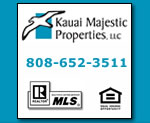![]()
|
BUYERS INFO
Questions For Your Lender The following are some good questions to discuss with your lender when applying for a home loan:
Improve Your Chances It is of great importance that you position yourself to have the best chance to get your offer accepted. Enhance your chance of getting the home of your choice by doing the following:
Mortgage Application Checklist The following are some items you should have with you when applying for a mortgage:
If VA - Certificate of Eligibility or DD214If Employee Relocation Client. Include relocation information and copy of offer, promissory note and copy of check on bridge loan. |
Financing Options There are many times of financing options available to homebuyers. Here are some of the most common: Fixed Rate Mortgage The interest rate on a fixed rate mortgage stays the same throughout the term of the loan, usually 15 or 30 years. This means the principal interest portion of your payment remains the same. Payments are stable but initial rates tend to be higher than adjustable rate loans and often cannot be assumed by a subsequent buyer. Balloon Mortgage A balloon mortgage is a loan that must be paid off after a certain period. The advantage they offer is an interest rate that is lower than a mortgage that is made for 30 years. Adjustable-Rate Mortgage (ARM) This interest rate is linked to a financial index, such as a Treasury security or a cost of funds, so your monthly payments can vary up or down over the life of the loan, usually 25 to 30 years. Interest rates can change monthly, annually, or every 3 or 5 years. Some ARM's have a cap on the interest rate increase, to protect the borrower. Other terms relating to adjustable-rate mortgages:
VA Loan The VA does not lend money; it guarantees a portion of the loan so that lenders who originate the loan feel comfortable with their risk. Qualified veterans can obtain loans up to $203,000 with no down payment. VA-guaranteed loans can be combined with second mortgages and are assumable upon qualifying by any future buyer. FHA Loan FHA does not lend money or make a loan; rather, it insures loans. The down payment can be as low as 2.25%. Either buyer or seller may pay discount points. FHA charges a 2.25% up front Mortgage Insurance Premium (or as little as 2% for a first time home buyer) that can be financed in the mortgage amount or paid in cash (no premium is required for condominiums). The borrower must also pay an annual Mortgage Insurance Premium or .5%, which is collected monthly. Seller Assisted Second Mortgage The seller of the house lends the buyer enough to make up the difference between the purchase price and the down payment plus first-mortgage balance (a commercial lender may also make this kind of loan). The terms including the interest rate are based on buyer/seller agreement. It is often a short-term (5 to 15 year) loan; sometimes "interest only" payments until the term date when the balance is due in full. A buyer can then refinance the home. Assumable Mortgage
Buyer "takes over" or assumes the mortgage obligation of the seller
(with concurrence of the lender). The interest rate doesn't change
and is sometimes lower than current rates. Often the loan fees are
less as well. |
|
Profile | Featured
Listings | MLS Search | Email
Update Alert | Buyers/Sellers | Community
Links | Home
|






